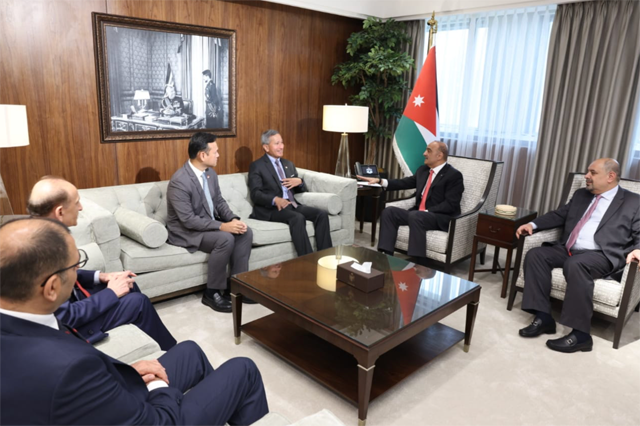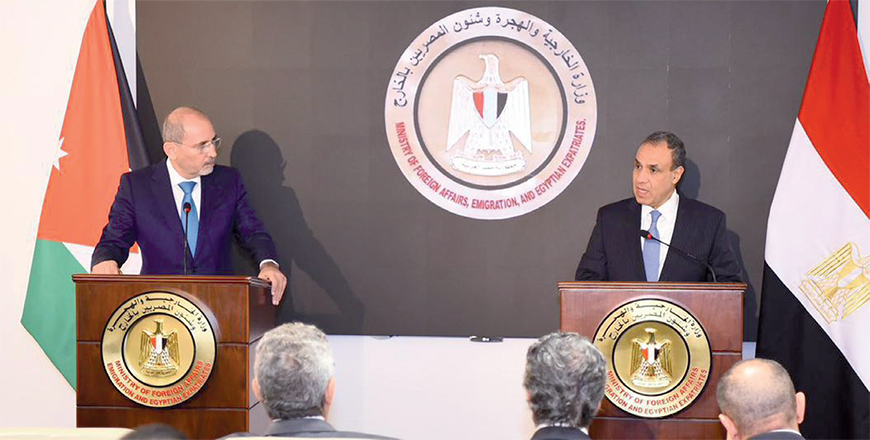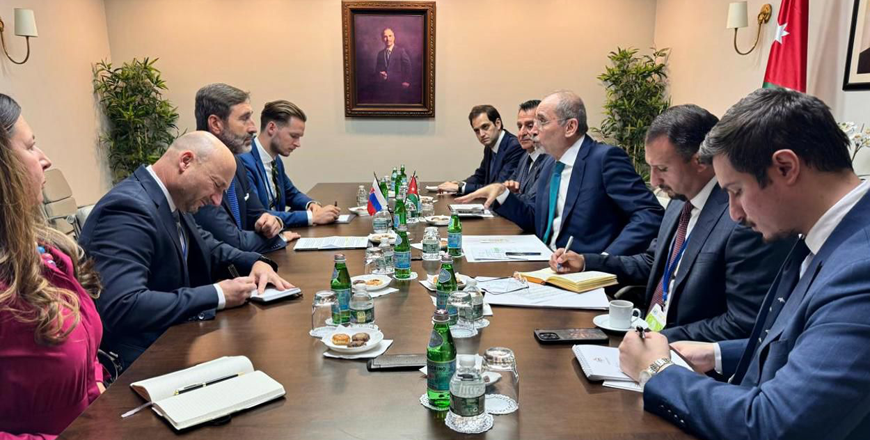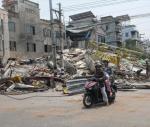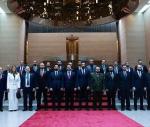You are here
Safadi, Egyptian counterpart discuss regional development, biliteral relations
By JT - Jul 11,2024 - Last updated at Jul 11,2024
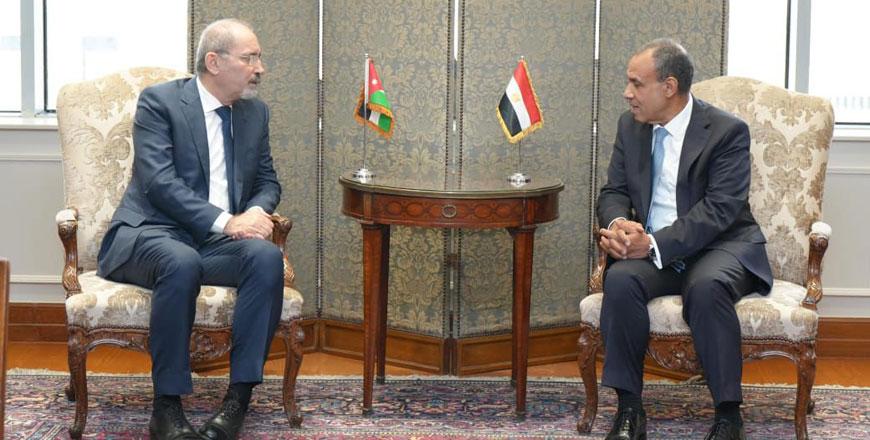
Deputy Prime Minister and Foreign Minister Ayman Safadi on Wednesday in Cairo meets with Minister of Foreign Affairs and Migration and Affairs of Egyptians Abroad Badr Abdel Aty, and reaffirmed the 'deep and solid relations' between the two countries (Petra photo)
AMMAN — Deputy Prime Minister and Foreign Minister Ayman Safadi on Wednesday in Cairo met with Minister of Foreign Affairs and Migration and Affairs of Egyptians Abroad Badr Abdel Aty, and reaffirmed the "deep and solid relations" between the two countries.
Talks during the meeting also highlighted the shared commitment to enhancing cooperation in all fields, in line with the directives of the two nations' leaders, according to a Foreign Ministry statement.
The meeting focused on developments in the region and efforts to stop the Israeli aggression on Gaza, which has resulted in unprecedented suffering and a humanitarian catastrophe.
They also discussed the need to deliver sufficient and sustainable humanitarian aid throughout the besieged strip.
The minister added that the two countries reaffirmed their shared positions on the current challenges, particularly the Palestinian cause, which is the central, foremost, and fundamental issue for all.
He added that 278 days of brutal and barbaric Israeli aggression on Gaza have seen Israel commit unprecedented war crimes in modern history, such as killing children, killing UN relief workers, destroying an entire society, targeting hospitals, schools, mosques, and churches, and making Gaza an unsafe place for its residents.
Safadi said that this is a major challenge, and joint efforts are still aimed at stopping this aggression and ending the humanitarian disaster it causes, which is worsening daily.
The minister noted that previously, the number of trucks entering Gaza had increased to several hundred, but recently this number has dropped to no more than 40 trucks, with a similar number coming intermittently from Jordan.
The reason for this is Israel's illegal measures and its obstruction of not only aid entry but also creating a safe environment for UN organisations to distribute this aid, as well as its occupation of the Rafah crossing, he noted.
Safadi said that the issue of UNRWA is fundamental; no organisation can do what this UN agency does, and the agency is targeted. It is the subject of a political assassination by the Israeli occupation authorities, which predates the events of October 7.
Israel wanted to eliminate the agency because it is a step towards its project to liquidate the Palestinian cause and abolish the refugee issue, which is a core issue of the final status issues that must be resolved according to UN resolutions, the minister said.
Safadi also pointed out that what is happening in the West Bank can be described as killing all chances of achieving peace in the region because it undermines the two-state solution and the chances of realising the Palestinian state, through land confiscation, expansion of illegal settlements, attacks on Palestinians, and allowing settler terrorism to take more Palestinian lives and destroy their property.
Regarding the trilateral cooperation mechanism between Jordan, Egypt, and Iraq, Safadi said that this system was established when the leaders launched it as a building block for wider Arab cooperation.
The minister added that the three countries continue to work towards achieving additional accomplishments through this mechanism because of its benefits to these nations and the region as a whole, mainly because it serves as a model for joint Arab action based on mutual benefit and integration.
On the crisis in Syria, Safadi said: "We all work to end the crisis on principles that guarantee Syria's unity, sovereignty, and independence, eliminate terrorism, and create conditions that ensure the voluntary return of refugees, so that Syria and its people regain their security, stability, and right to a free and dignified life."
Safadi added that the issue of refugees returning to their country is a priority for the Kingdom through creating conditions that allow the voluntary return of refugees because solving the refugee issue can only be achieved by their return to their homeland.
For his part, Abdel Aty said that the visit is part of intensified coordination and consultation between Amman and Cairo on various regional and international issues.
He added that the discussions emphasised appreciation for the significant role played by Jordan in hosting and caring for the interests of Egyptians and overcoming any challenges they face, especially in light of the attention given by the political leadership in Egypt to the conditions of Egyptians abroad.
Related Articles
AMMAN — Prime Minister Bisher Khasawneh on Sunday met Singapore Foreign Minister Vivian Balakrishnan, with the discussions focusing on the s
AMMAN — Deputy Prime Minister and Foreign Minister Ayman Safadi will deliver a letter from His Majesty King Abdullah to Egyptian President A
AMMAN — Deputy Prime Minister and Foreign Minister Ayman Safadi on Tuesday continued his meetings with counterparts, on the sidelines of the


